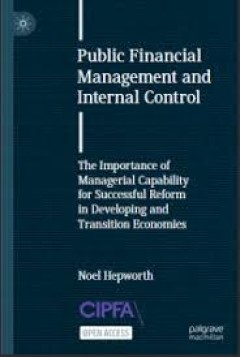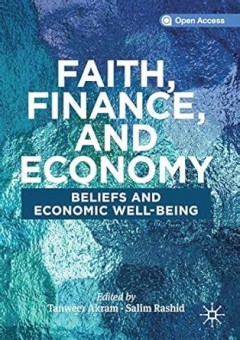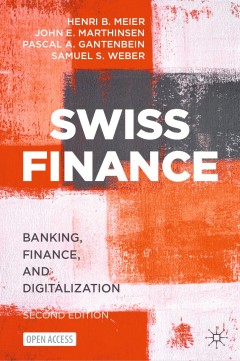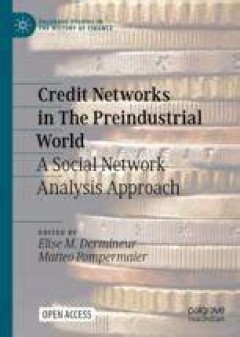Filter by

After the Berlin Wall
After the Berlin Wall' tells the inside story of an international financial institution, the European Bank for Development and Reconstruction (EBRD), created in the aftermath of communism to help the countries of central and eastern Europe transition towards open market-oriented democratic economies. The first volume of a history in two parts, After the Berlin Wall charts the EBRD’s life from…
- Edition
- -
- ISBN/ISSN
- 9789633863947
- Collation
- 420
- Series Title
- -
- Call Number
- -

Public Financial Management and Internal Control
This chapter describes the key aspects of public financial management and internal control reform, viewed through a managerial lens. It describes how, without a thorough appreciation of the linkage with management, this reform will at best fail to meet the intended objectives and at worst could add to administrative bureaucracy and hence costs. These are recurrent themes throughout th…
- Edition
- -
- ISBN/ISSN
- 9783031350665
- Collation
- XXIII, 579
- Series Title
- -
- Call Number
- -

Insurance Distribution Directive= A Legal Analysis
This open access volume of the AIDA Europe Research Series on Insurance Law and Regulation offers the first comprehensive legal and regulatory analysis of the Insurance Distribution Directive (IDD). The IDD came into force on 1 October 2018 and regulates the distribution of insurance products in the EU. The book examines the main changes accompanying the IDD and analyses its impact on insurance…
- Edition
- 1
- ISBN/ISSN
- 9783030527389
- Collation
- XI, 441 hlm ill; lamp
- Series Title
- 3
- Call Number
- -

Theorie und Ideengeschichte der Steuergerechtigkeit = Eine steuertheoretische…
In dieser Open-Access-Publikation stellt der Autor die Evolution der Steuergerechtigkeitsideen und -prinzipien in einen historischen Zusammenhang und ordnet diese in größere Strukturen ein, um so ein geschlossenes Bild der Steuergerechtigkeitskonzepte in der Rechts-, Sozial- und Wirtschaftsgeschichte zu zeichnen. Dabei gelingt es dem Autor, die Entwicklung der finanzwissenschaftlichen Diskuss…
- Edition
- 1
- ISBN/ISSN
- 9783658259037
- Collation
- XVI, 316 ill; lamp
- Series Title
- -
- Call Number
- -

Transdisciplinarity in Financial Communication = Writing for Target Readers …
This open access book identifies and analyses problems of text production in finance from three complementary perspectives: problem identification, problem analysis, and problem solution. By doing so, it explains why solving these problems in transdisciplinary collaboration benefits theory, practice, and society at large. Drawing on 25 years of ethnographic research, roughly 2100 text products,…
- Edition
- 1
- ISBN/ISSN
- 9783031291159
- Collation
- XII, 274 hlm; ill., lamp.,
- Series Title
- -
- Call Number
- -

Faith, Finance, and Economy = Beliefs and Economic Well-Being
This open access book seeks to foster a multidisciplinary understanding of the ties between faith, financial intermediation, and economic progress by drawing on research across economics, finance, history, philosophy, ethics, theology, public policy, law, and other disciplines. Chapters in this edited volume examine themes as consequential as economic opportunities, real world outcomes and fait…
- Edition
- 1
- ISBN/ISSN
- 9783030387846
- Collation
- XI, 239 hlm; ill., lamp.,
- Series Title
- -
- Call Number
- -

Modern Cryptography Volume 1 : A Classical Introduction to Informational and …
This open access book systematically explores the statistical characteristics of cryptographic systems, the computational complexity theory of cryptographic algorithms and the mathematical principles behind various encryption and decryption algorithms. The theory stems from technology. Based on Shannon's information theory, this book systematically introduces the information theory, statistical…
- Edition
- 1
- ISBN/ISSN
- 9789811909207
- Collation
- XI, 359 hlm; ill., lamp.,
- Series Title
- -
- Call Number
- -

Building a Cashless Society : The Swedish Route to the Future of Cash Payments
This open access book tells the story of how Sweden is becoming a virtually cashless society. Its goal is to improve readers’ understanding of what is driving this transition, and of the factors that are fostering and hampering it. In doing so, the book covers the role of central banks, political factors, needs for innovation, and the stakeholders involved in developing a cashless ecosystem. …
- Edition
- -
- ISBN/ISSN
- 978-3-030-10689-8
- Collation
- X, 96
- Series Title
- SpringerBriefs in Economics (BRIEFSECONOMICS)
- Call Number
- 332 ARV b

Swiss Finance
How could a small country in the middle of Europe, surrounded by much bigger countries and economic giants like Germany and France and in direct competition with North American and Asian rivals, develop world-class, cutting-edge financial markets? Swiss Finance answers this question, separating myth from reality, by explaining how Switzerland managed dramatic pressures brought to bear on its fi…
- Edition
- 1
- ISBN/ISSN
- 978-3-031-23194-0
- Collation
- XXXVI, 612
- Series Title
- -
- Call Number
- -

Credit Networks in The Preindustrial World
This open access book examines the formation and sustainability of private credit networks in past societies, gathering a global range of case studies from Europe and the Americas. The book represents a fi rst attempt to coordinate the work of different scholars working on credit networks and aims to explore the possibilities offered by social network analysis for the study of past fi nancial m…
- Edition
- 1
- ISBN/ISSN
- 978-3-031-67117-3
- Collation
- -
- Series Title
- Palgrave Studies in the History of Finance
- Call Number
- XIV, 403
 Computer Science, Information & General Works
Computer Science, Information & General Works  Philosophy & Psychology
Philosophy & Psychology  Religion
Religion  Social Sciences
Social Sciences  Language
Language  Pure Science
Pure Science  Applied Sciences
Applied Sciences  Art & Recreation
Art & Recreation  Literature
Literature  History & Geography
History & Geography